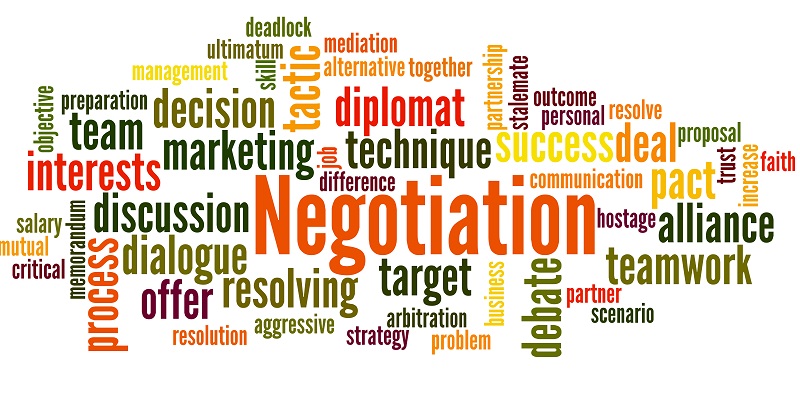#OnlyTogether can we encourage governments to upskill their diplomacy

#OnlyTogether can we encourage governments to upskill their diplomacy
When I was previously with the GCSP in 2018 I worked on a project that was examining the future of diplomacy – a task that I imagined I could resume this year on my return. The main idea of the project was that, despite the availability of technologies that improve communication and collaboration, most of our diplomatic practices have changed little over the last century. My aim was to point out that technology has made new means of communication available to diplomats, and that those not utilising these advances would become increasingly less effective.
On returning to the GCSP last week I reopened the file I had saved (to the Cloud) in September 2018, intending to polish it up a bit and use it as a basis for further discussions with other GCSP colleagues. I saw, however, that what I had worked on two years ago was now almost completely useless – COVID-19 had happened while I was away. What I had believed were cutting edge recommendations on putting technology to use are being implemented every day after the virus had forced us into (socially) distanced collaboration. With foreign ministry employees the world over working from home and connecting online, the ways in which diplomats do business have changed. The challenge now will be to learn the correct lessons from how we have been forced to utilise these technology-facilitated ways of working and communicating and build them into our future tradecraft. It will not be enough simply to continue holding more virtual meetings or working from home on a more regular basis. Governments should be thinking now about which tools and communication methods that have become necessities in the time of COVID will remain useful should the world return to “normal”. I do not pretend to have all the answers, and indeed these answers will – and should – differ from country to country, but some possibilities could include the following:
- Instead of working through embassies, experts in capital cities should adopt a more regular practice of meeting virtually. Although the trend was already to move in this direction pre-COVID, there was still a large reliance on face-to-face contacts. Should one's portfolio include, for example, human rights or trade, it should become a matter of course to connect virtually with colleagues interested in the same issues in other countries. This will mean some reorganisation that will diminish the typical pattern of assigning ministry employees to focus on particular countries or regions. If I am in Washington and want to know the German position on intellectual property rights (IPR) in China, I should be able to connect directly with the IPR expert in Berlin. With most issues having regional or global rather than bilateral significance, the building of coalitions of like-minded governments will grow in importance. Developing collaborative relationships among policymakers could be decisive.
- Governments should also look at ways to make data available and increase transparency through the use of openly available information, which would allow them to avoid false perceptions and focus on common interests. When the US announced that Russian violations were forcing it to withdraw from the Intermediate-Range Nuclear Forces Treaty in 2018, there was alarm among NATO members based on the mistaken belief that the US government was against arms control. Only after painstaking diplomatic outreach and information sharing did these NATO members understand that the US had no choice and that the credibility of arms control was strengthened by underlining that treaty violations had consequences. Earlier and more regular interaction and data sharing could have avoided much of the agitation, and a united front constructed sooner in the process could possibly have exerted more pressure on Moscow to return to compliance with the treaty. Similarly, more transparency could help governments to recognise common interests, a process we have seen in action through 2020 as more Western governments are recognising the risks of potentially facilitating Chinese government control of 5G infrastructure by using the technology of the Chinese company Huawei in key parts of that infrastructure.
The COVID-19 pandemic has changed many of the ways in which organisations approach their business worldwide. Foreign ministries have had to scale back many of their activities and traditional ways of conducting diplomacy. The challenge now is to identify which practices can add value to and productively change the traditional practices of diplomacy. Can we take advantage of the necessity to change forced on us by COVID to overcome the inertia of doing things the way in which they have always been done? In what other ways can we use our pandemic experiences to bring diplomacy into the 21st century? Only together can we figure this out.
ABOUT THIS BLOG SERIES:
As the world attempts to navigate yet another major disruption, we continue to look to one another to identify sustainable solutions and rebuild better. It is time for our world to take conscious steps towards unity and to work together so as to move beyond our preconceptions and challenge our stagnation. This #OnlyTogether blog series provides you with expert insights and the beginnings of a roadmap to a more peaceful and secure future. This blog series was launched to celebrate our 25th Anniversary, discover our 3-day event programme here.
John Erath returns to GCSP after a two-year assignment on the U.S. National Security Council, where he was responsible for European issues. In this capacity, he focused on cooperation with NATO and the EU, as well as heading White House efforts to improve stability in the Balkans. He has thirty years of diplomatic experience and who began his career in the 1990s working in what was then Yugoslavia. He was later seconded to the OSCE in Kosovo and the Office of the High Representative in Sarajevo. Subsequently, he covered the Balkans at the U.S. Mission the NATO and for the Office of the Secretary of Defense. Mr. Erath also has extensive experience in arms control and non-proliferation, having worked on the delegation for adaptation of the Conventional Forces in Europe (CFE) Treaty and led the U.S. Delegation to the Wassenaar Arrangement General Working Group. He has also held diplomatic positions in India and Brazil. Most recently, he headed the political-military affairs office at the U.S. Embassy in Ankara. Mr. Erath is a graduate of Georgetown University and has a master’s degree in National Security Strategy from the National War College in Washington. He is the author of several articles on military history and three plays. He is married to Tara Erath, State Department Chair at the Eisenhower School of the National Defense University, and has two children.



